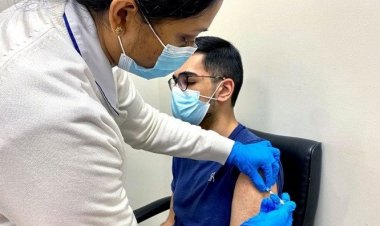Insaaf Camp Interns Conduct Manifesto Tracking of Political Parties in Pakistan

As part of their summer internship with Insaaf Camp, a grassroots level legal awareness initiative by Courting The Law, a group of bright, young law students delved into the political sphere of Pakistan and conducted research on the election manifestos of Pakistan’s major political parties, the PTI, PMLN and PPP, in order to assess the promises made by them against their performance during their tenure.
The following student interns had been involved in conducting a comparative analysis of the manifestos of the three major political parties.
Rohma Fatima Qayyum: a third-year student at LUMS Law School. She is passionate about legal research and legal writing and has also participated in the 3rd LUMS International Moot Court Competition (LIMCC) organized by the LUMS Law and Politics Society (LPS). She is currently working as Director HR at LPS. Her areas of interest include judicial reform, human rights law and public interest litigation.
Amna Imtiaz Goraya: a fourth-year law student studying at LUMS. While she has done volunteer work and internships in various fields, her enthusiasm lies in legal research and the opportunity to educate underprivileged communities and individuals about their rights and the routes they can take to access justice. She is currently working as the Media and Promotions Director at LUMS Law and Politics Society. She looks forward to learn more about the legal field and the areas best suited to her skills and interests in future.
Hubaish Raza: a final year law student at SZABIST Karachi. He has interned with various organizations such as the legal department of the Institute of Chartered Accountants of Pakistan, Kabraji and Talibuddin, the legal department of Foodpanda Pakistan, as well as Courting The Law. He has keen interest in international law, dispute resolution and human rights and will soon be pursuing a masters degree in international law.
Siham Ladhani: a researcher by passion and a law student by choice. She is pursuing a law degree from the University of London in affiliation with Themis School of Law, Karachi. Over the course of various internships and projects, she has developed an interest in international law, alternative dispute resolution, law reform and policy, family law and commercial awareness. She also works as a legal academic writer and shares reviews, guides and academic articles on different areas of law.
Ashraf Ali: a third-year law student at Lahore University of Management Sciences. He hails from Rahim Yar Khan in Southern Punjab and has previously studied in Islamabad. Working with Insaaf Camp has helped him gain insights into the thorough research skills needed to be a professional legal writer. He believes this experience has had profound influence on his personality as well.
Rohma and Amna worked on researching and compiling the 2018 manifesto of the political party currently in power, the Pakistan Tehreek-e-Insaf (PTI). They analyzed the promises and claims made by PTI in its election manifesto and how well it had been able to uphold them during its first two years in power. The fulfilment was based on both legislative work and its implementation. Some of the manifesto’s claims included ensuring the freedom of press, gender parity, provision of clean drinking water, tax reforms and advanced healthcare. The interns tracked the commitments that had been made and assessed the performance of the current government in upholding them.
Hubaish and Siham thoroughly researched the 2013 election manifesto of the former leading party, the Pakistan Muslim League-Nawaz. They reviewed the manifesto titled the ‘National Agenda for Real Change’, compared PMLN’s tenure from 2013 to 2018 and analyzed how many claims had successfully been met by the PMLN government. Commitments had included ensuring food security, combating inflation, resolving the energy crisis and creating the provinces of Hazara and South Punjab. The assessment concluded that not much had been met with success, largely owing to the disputes amongst members of the cabinet itself.
Ashraf analyzed the federal and provincial election manifestos of the Pakistan Peoples Party and whether they have fared well to date. The manifestos focused on necessities such as eradicating helplessness and hunger, providing healthcare and housing and promoting inclusiveness in the society. It was concluded that while the PPP government had enacted various laws, it had not been very successful in implementing them, especially in the province of Sindh.
What can be learned from research projects involving manifesto tracking is that the people of Pakistan need to be more aware of their rights and the commitments made by political parties in their manifestos before casting a vote for anyone. The research project highlights many shortcomings of the major political parties in fulfilling the promises made to the public. It also analyzes how the performance of parties measures against the change that they have promised to bring. Manifesto tracking also enhances the culture of accountability. The public must understand the importance of holding a party accountable if it fails to deliver on its word. Legislators get voted in based on democratic principles and must be answerable to the public in the same manner in order to ensure that they do not take unfair advantage of their position.
The research on manifesto tracking will be made available soon.

 Admin
Admin 





























